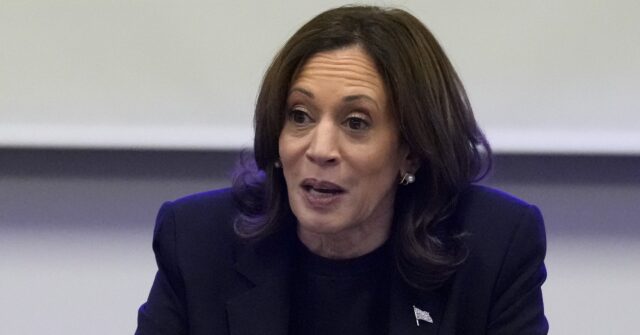On October 7, 2023, Vice President Kamala Harris issued a statement marking the tragic terror attack in Israel where Hamas militants killed approximately 1,200 individuals, including American citizens, and kidnapped many others. Describing the events as horrific—name-checking specific atrocities such as sexual violence and mass kidnappings—Harris underscored the global significance of the attack, noting its impact on Jewish communities beyond Israel. While expressing profound grief and concern for the Israeli victims, she reiterated her commitment to ensuring Israel’s security, specifically emphasizing her determination to eliminate the threat posed by Hamas and support Israel’s right to defend itself against Iranian influences. Concurrently, Harris’s statement reflected a broader narrative from the Biden administration that balances support for Israel with an acknowledgment of the Palestinian plight.
Harris’s message encapsulated a complex stance toward the ongoing conflict, especially in the wake of the ongoing war in Gaza, which has resulted in considerable civilian suffering and casualties over the past year. She expressed sorrow over the toll this violence has taken on innocents, lamenting the struggles faced by Gazan civilians in accessing essential resources like food, water, and medical care. Harris firmly advocates for a diplomatic resolution to the regional conflict, particularly concerning Lebanon, urging that lasting peace can only be achieved through dialogue rather than continued hostilities. This dual focus on Israeli safety and Palestinian rights poses a delicate balancing act, reflecting an intention to address the multifaceted nature of the crisis.
In her address, Harris touched upon Jewish mourning rituals, invoking the Kaddish prayer to emphasize a sense of hope amid bereavement. She articulated a vision of coexistence that encompasses dignity and freedom for both Israelis and Palestinians, framing the tragedy of October 7 not just as a moment of sorrow but also as a call to strive for harmony. However, this intricate balancing act has led to criticism from both sides of the political spectrum. Critics point to her careful wording as insufficiently supportive of either Israel or Palestine, which has provoked responses ranging from disappointment from pro-Palestinian activists who feel she should take a stronger stance, to an expressed preference for former President Donald Trump among Israelis who perceive his prior policies as more favorable.
Recent polls indicate that many Israelis would prefer to see Donald Trump over Kamala Harris in leadership concerning the Israeli-Palestinian conflict, revealing a growing discontent with Harris’s approach among those who may feel her response lacks decisiveness. The irony of pro-Palestinian activists endorsing Trump stems from their belief he could facilitate peace in the region, despite significant policy differences within the broader discourse on the Israeli-Palestinian issue. This sentiment exemplifies the fractures present among Democratic constituents and their resultant perceptions regarding the effectiveness of Harris and Biden in navigating such a complicated geopolitical landscape.
President Joe Biden echoed Harris’s statements, particularly emphasizing the necessity for diplomatic solutions in addressing conflict along the Israel-Lebanon border, showing a unified stance within the administration while also revealing how this communication aligns with broader U.S. foreign policy objectives in the Middle East. Biden’s acknowledgment of both the tragedies inflicted upon Israeli victims and the suffering of Palestinians portrays a nuanced diplomatic strategy that seeks to affirm the U.S.’s enduring commitment to Israel while recognizing the aspirations of the Palestinian people.
Overall, Vice President Harris’s statement serves as a reflection of the careful and complex navigation required in addressing multifaceted geopolitical issues, especially in the context of the October 7 attack. Her remarks illustrate the overarching theme of striving for peace and security while tackling the deep-rooted tensions that persist in the region. By expressing unwavering support for Israel’s right to defend itself, combined with advocacy for Palestinian rights, Harris attempts to bridge a polarizing divide, yet she faces the formidable challenge of addressing discontent from both supporters and critics, underscoring the ongoing struggle to forge a durable solution.

